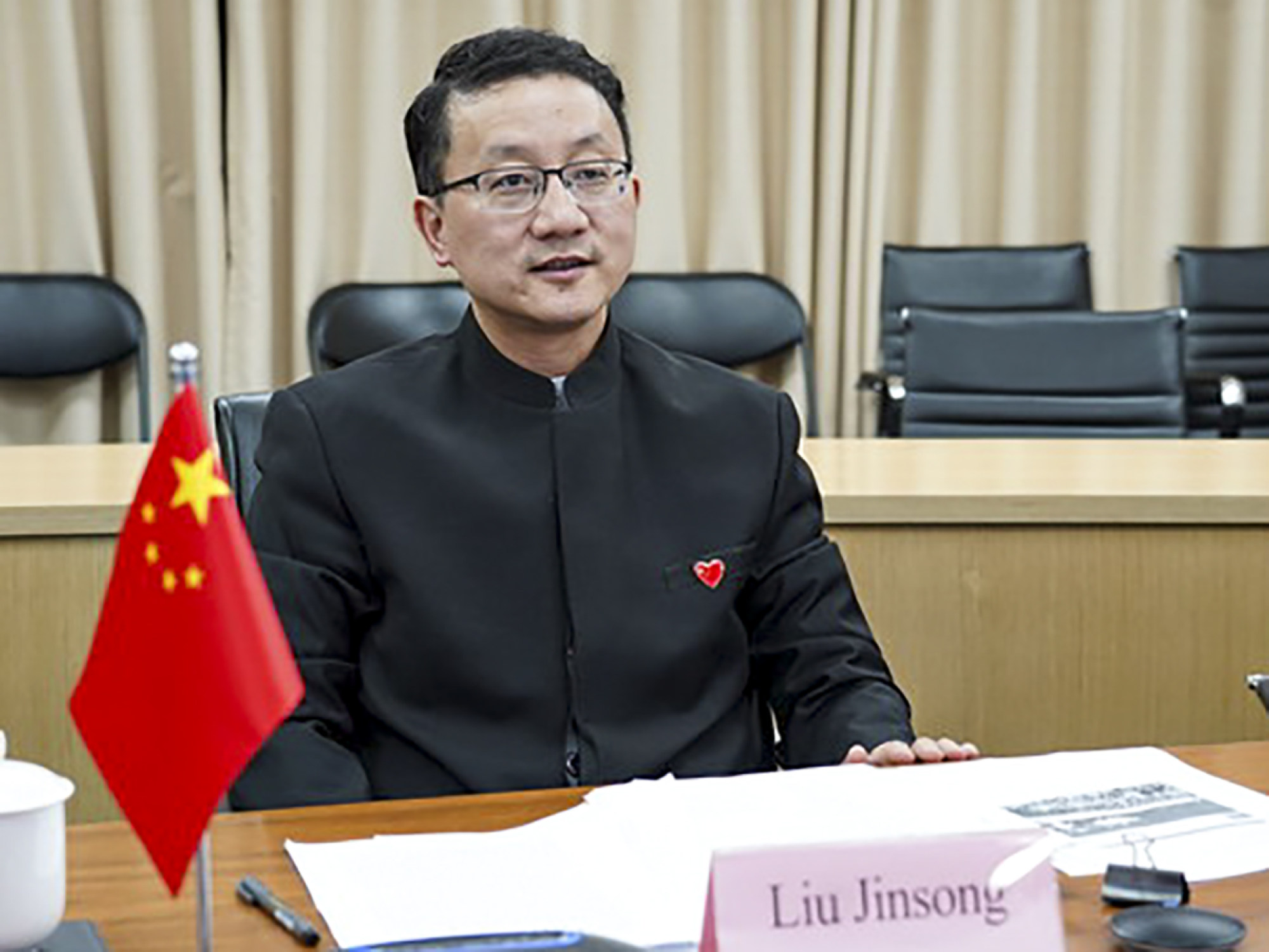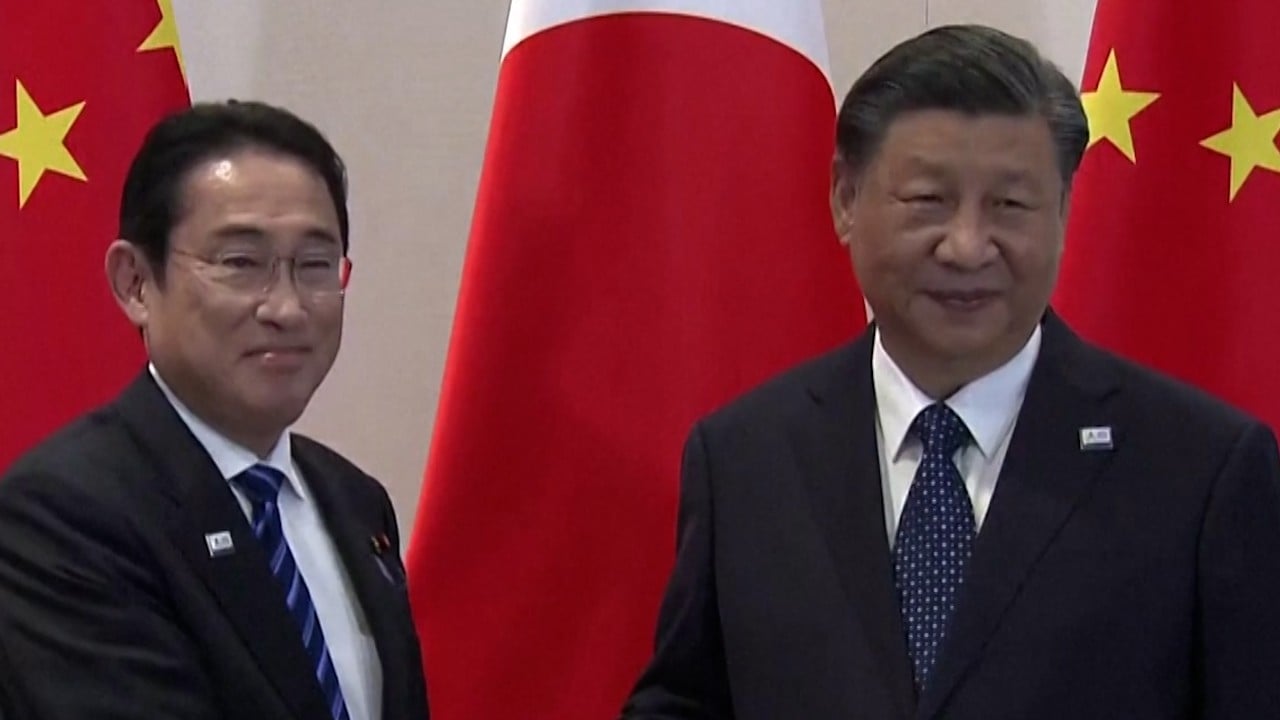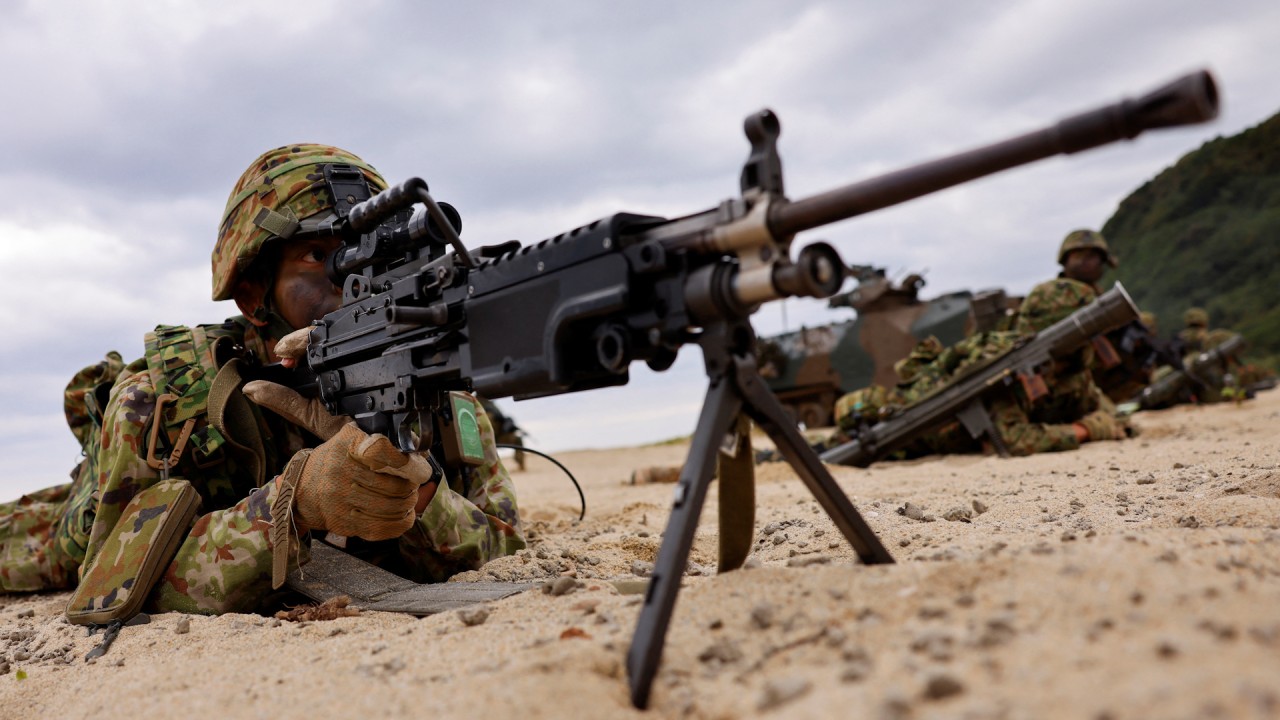
China tells Japanese delegation two giants could complement each other in the modern economy, despite differences
- Beijing and Tokyo foreign affairs officials meet as relations strained by differences on Taiwan and Japan’s decision to release Fukushima water
- Political chill and a slow economic recovery in China spark concerns of a spillover effect on bilateral economic ties
In his meeting with a delegation from the Japanese foreign ministry, Liu Jinsong, director general of the Chinese foreign ministry’s Asian affairs department, reiterated Beijing’s policy on Taiwan, an issue he said no country should intervene in.
During the meeting, Liu tried to strike a conciliatory tone on bilateral ties between China and Japan, which he said “have a lot of contradictions and differences, but also have common interests and space for cooperation”, according to the Chinese readout.
Bilateral ties should “not be confined to a single issue”, and the two sides should work together to address global challenges such as climate change, “and inject more stability and certainty into a world in turmoil”, he told delegation leader Sotaro Ozaki, director of the Japanese ministry’s international economy division.
“China and Japan can learn from each other and complement each other’s achievements in each other’s modernisation process,” he said.

“And both sides should work together to oppose … unilateralism and ‘small yard, high fence’,” Liu said, referring to the term used by US officials to describe the strategy to impede China’s advances in critical technology while limiting wider economic repercussions.
In response, Ozaki said the two countries should “continue to engage in dialogue, regardless of the difficulties encountered so as to push forward bilateral ties”.
Relations between the two largest Asian economies, already complicated by wartime history and territorial disputes in the East China Sea, have been tested more recently by Beijing’s ban on Japan’s seafood exports following Tokyo’s decision in August to release treated water from its wrecked Fukushima nuclear plant into the sea.
China-US rift looms over Japan, South Korea as Beijing wants to restart trade
The frosty political ties and a slow economic recovery in China have sent a chill over bilateral economic ties.
China is Japan’s largest trading partner, and one of the biggest investment destinations for Japanese companies.
But according to a report from the Japanese Chamber of Commerce and Industry in China released on Monday, 48 per cent of the companies surveyed said they did not invest in China or had cut their investment in 2023 compared to the previous year. Many said they were worried about decoupling, China’s law on espionage and data export rules.
Beijing was also upset by Tokyo’s increasing alignment with Washington over a number of contentious issues, from Japan’s export curbs on chip-making equipment to mainland China to the South China Sea and its closer ties with Taiwan, an island Beijing sees as part of China to be reunited by force if necessary.
Most countries, including the US and Japan, do not recognise Taiwan as an independent state, but Washington and its allies are opposed to any attempt to take the island by force.
Japan bails out from 2023 and embraces 2024 amid multiple challenges
Following the election in Taiwan on Saturday, Japanese Foreign Minister Yoko Kamikawa sent a congratulatory statement to president-elect William Lai Ching-te from the independence-leaning Democratic Progressive Party, who Beijing sees as an “Taiwan independence worker”.
The Chinese embassy in Japan protested, saying Kamikawa’s message was “a serious interference in China’s internal affairs”. It urged Japan to stop sending “any wrong signals to Taiwan independence forces so as not to create disturbances to peace and stability in the Taiwan Strait and Sino-Japan relations”.



